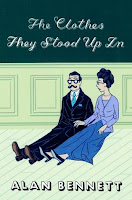Read by Sean Crisden
8 hours, 16 minutes
Published January 2001 by University Press
Publisher's Summary:
Thelonious "Monk" Ellison's writing career has bottomed out: his latest manuscript has been rejected by seventeen publishers, which stings all the more because his previous novels have been "critically acclaimed." He seethes on the sidelines of the literary establishment as he watches the meteoric success of We's Lives in Da Ghetto, a first novel by a woman who once visited "some relatives in Harlem for a couple of days." Meanwhile, Monk struggles with real family tragedies-his aged mother is fast succumbing to Alzheimer's, and he still grapples with the reverberations of his father's suicide seven years before.
In his rage and despair, Monk dashes off a novel meant to be an indictment of Juanita Mae Jenkins's bestseller. He doesn't intend for My Pafology to be published, let alone taken seriously, but it is-under the pseudonym Stagg R. Leigh-and soon it becomes the Next Big Thing. How Monk deals with the personal and professional fallout galvanizes this audacious, hysterical, and quietly devastating novel.
My Thoughts:
In December 2023, almost a year before I became aware of Percival Everett, this book was made into the film American History, starring Jeffrey Wright. It's one of those movies that I had every intention of watching (and still do), but had no idea until I began looking for more books by Everett (after loving his James last year) that Everett was the author behind that movie. Movie I want to see? Author I'm newly admiring? Heck, yes.
This was a rare experience for me. While I thought Crisden did a terrific job reading the book, I also felt like I would have enjoyed this one had I picked up a physical copy of the book. I think. Because there is a part of this book where we read the book that Monk ends up writing and it's probably much better experienced by listening to it. Still, I think I would have paid better attention, felt more attached to the characters. And as much as Monk annoyed me, with his snobbish attitudes about literature, I did want to care about him.
Despite his literary skill, it's not been a lucrative career; and with two siblings, a father, and a grandfather who are/were doctors, he's something of the black sheep of the family. Sister Lisa is a doctor at an abortion center and takes care of their aging mother until tragedy strikes. Monk's brother is an addict with a failing marriage (and an awakening to the fact that he's gay) and a busy career so he can't be counted on. Clearly Monk has to step up.
Fortunately, that book he didn't mean to write has actually given him the fiscal comfort to be able to do that. The problem is that Monk hates the book, doesn't want to have anything more to do with it. But the public is eating it up and the critics love it. Stagg R. Leigh is in big demand and Monk has to decide how whether or not it's time to fess up and risk losing continuing income from the book, or to take on Leigh's persona and dig in.
It's an excellent satire that I imagine has an even bigger impact on those who live that life, who understands the line that Monk is walking as he writes about something he actually knows nothing about. Is Monk empathetic to the plight of his characters or has he written an exploitative work? This one certainly gave me a lot to think about. I just wish I had read it, rather than listening to it. I think.






